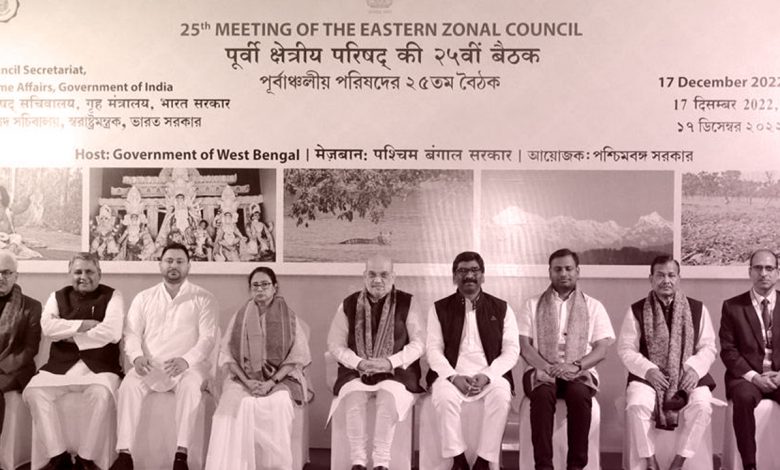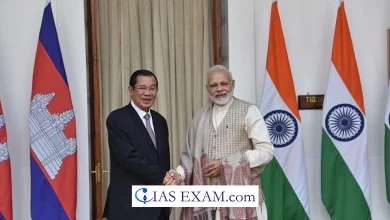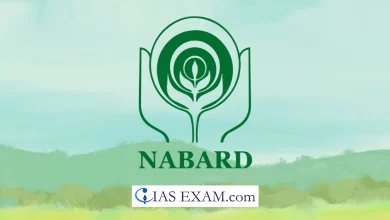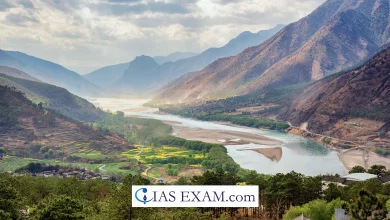Daily Current Affairs for UPSC
25th Eastern Zonal Council

Topic- Governance [GS Paper-2]
Context- Recently, the 25th Eastern Zonal Council meeting was held in Kolkata and it was presided over by the Home Minister.
Key Highlights
- Eastern Zonal Council comprises the states of Bihar, Jharkhand, Odisha, Sikkim and West Bengal.
Zonal Councils
- The idea of creation of Zonal Councils was presented by the first Prime Minister of India, Pandit Jawahar Lal Nehru in 1956 during debate on the report of the States Reorganisation Commission.
Functions
- Any matter of common interest in case of economic as well as social planning.
- Any matter concerning border disputes, linguistic minorities and inter-State transport.
- Any matter connected with the reorganisation of the States under the State’s Reorganisation Act.
Composition
- The Northern Zonal Council comprises the States of Haryana, Himachal Pradesh, Jammu & Kashmir, Punjab, Rajasthan, National Capital Territory of Delhi and Union Territory of Chandigarh.
- The Central Zonal Council includes the States of Chhattisgarh, Uttarakhand, Uttar Pradesh and Madhya Pradesh.
- The Eastern Zonal Council includes the States of Bihar, Jharkhand, Orissa, Sikkim and West Bengal.
- The Western Zonal Council comprises the States of Goa, Gujarat, Maharashtra and the Union Territories of Daman & Diu and Dadra & Nagar Haveli.
- The Southern Zonal Council includes the States of Andhra Pradesh, Karnataka, Kerala, Tamil Nadu and the Union Territory of Puducherry.
North-eastern Council
- The North-eastern States Assam, Arunachal Pradesh, Manipur, Tripura, Mizoram, Meghalaya and Nagaland are not included in the Zonal Councils and hence their special problems are looked after by the North-eastern Council, set up under the North-eastern Council Act, 1972.
- The State of Sikkim has been included in the North Eastern Council vide North Eastern Council (Amendment) Act, 2002 notified in 2002.
Organisational Structure of Zonal Councils
- The union Home minister serves as the Chairman of each of these Councils.
- The Chief Ministers of the States included in each zone serve as Vice-Chairman of the Zonal Council for that zone by rotation, each holding office for a period of one year at a time.
- Chief Minister and two other Ministers as nominated by the Governor from each of the States and two members from Union Territories are other members included in the zone.
- One person nominated by the Planning Commission for each of the Zonal Councils, Chief Secretaries and another officer/Development Commissioner nominated by each of the States included in the Zone serve as its advisers.
- Union Ministers are also invited to participate in the meetings of Zonal Councils depending upon need.
Objectives
- To bring out national integration.
- To arrest the growth of acute State consciousness, regionalism, linguism and particularistic tendencies.
- To enable the Centre and the States to co-operate and exchange ideas and experiences.
- To establish a climate of co-operation amongst the States for successful and speedy execution of development projects.





.png)



